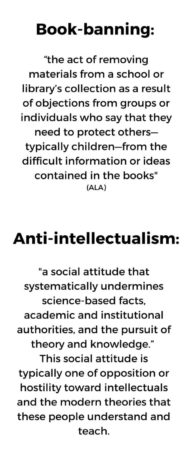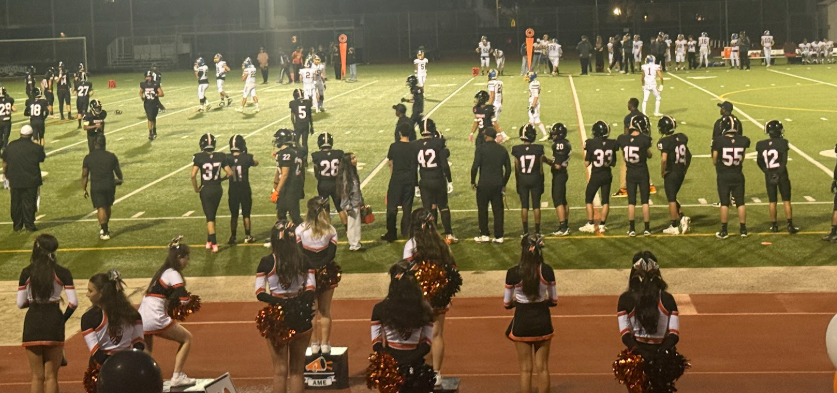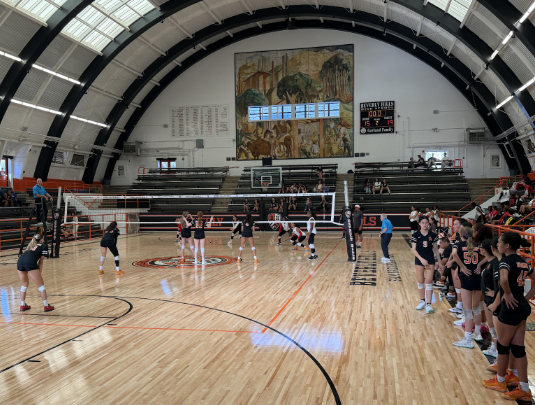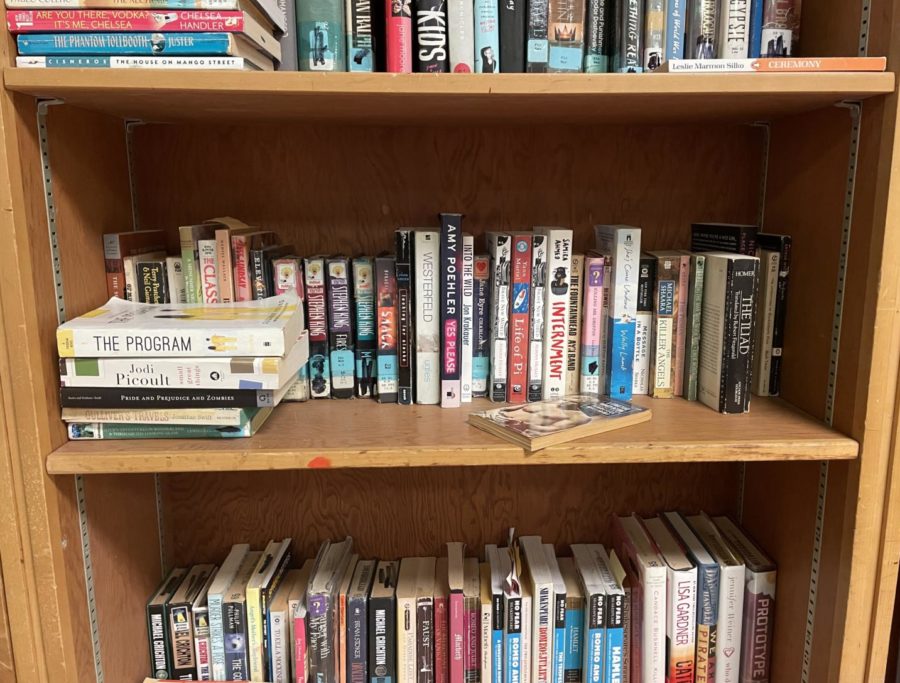Book banning, anti-intellectualism, how they are related
February 7, 2023

With increasing numbers of books being banned and challenged, the United States is seeing an increase in anti-intellectualism rhetoric.
While book banning is facing an upward trend right now, it has not been absent throughout history. According to Reader’s Digest, “Book banning is not new: This form of censorship began in what is now the United States in the 17th century and never went away, although there have been periods when politically motivated moral panics made these challenges against ‘controversial’ books far more frequent. Unfortunately, we’re living in one of those periods right now.”
Literary works are actively being banned across the country at higher rates than ever before. This leads to a decrease in exposure to information and opinions of many issues.
The number of books that are being banned is frightening to those who wish to keep books on shelves. PEN America noted that from July 2021 to June 2022, 2,532 books were banned.
Ms. Jessica Jay, Beverly’s school librarian, shares her concerns about the relationship between book banning and anti-intellectualism.
“New information that is being shared that may be research-based is being taken away from the general public so that more knowledge can’t be learned about a certain subject,” Ms. Jay said. “Certain books have been banned in libraries across the US for various reasons. I think that books, all books, should be available for people to read, knowing that certain controversial issues are within that book but still kind of letting it out there…it’s important to kind of recognize that even within writing, we will see biases and things that should generally be shared and talked about instead of hidden away and taken off shelves.”
The rates of books being banned contributes to the inability to obtain knowledge on certain subjects. An example of the spread of anti-intellectualism is a distrust of science, and the chaos of COVID-19 certainly did not help. The Pew Research Center reported in February that 29% of U.S. adults say they have a great deal of confidence in medical scientists to act in the best interests of the public, down from 40% who said this in November 2020, and below the ratings before COVID began.
We are not only seeing this shift in anti-intellectualism in schools and science, but also with celebrities who have influence.
Thomas Chatterton Williams’s article “The People Who Don’t Read Books” highlights Kanye West’s comments on not reading books: “It is one thing in practice not to read books, or not to read them as much as one might wish. But it is something else entirely to despise the act in principle. Identifying as someone who categorically rejects books suggests a much larger deficiency of character.”
There is no one type of person or class who can be anti-intellectual. According to Studio ATAO, “Anti-intellectualism is often associated with America’s current ideological right, conservative thinkers, and religious followers, yet progressives and liberals have also wielded anti-intellectualism to protect their own political power and social standing (including, ironically, perpetuating a non-existent correlation between intellect and class, and a paternalistic approach in addressing social change).”
While both sides of the aisle are susceptible to anti-intellectual beliefs, conservatives seem to be affected slightly more: “The heart of the problem for conservatives is this: they fear too much intellectualism will lead people to question authority and hierarchy,” Matt McManus, Current Affairs, wrote.
However, anti-intellectualism from any perspective has potentially harmful outcomes. According to Psychology Today, “Ignorance, or an aversion to reason, has allowed things like gun violence and racism to define American culture. Anti-intellectual societies fall prey to tribalism and simplistic explanations, are emotionally immature, and often seek violent solutions. Corporate interests encourage anti-intellectualism, conditioning Americans into conformity and passive acceptance of institutional dominance.”
Banning books contributes to anti-intellectual ideas of accepting institutional control: picking and choosing which areas of knowledge to study and understand.
Unfortunately, at the moment, no one knows for sure whether or not this upward trend with book banning and anti-intellectualism will continue.
“I think that sometimes, when you ban a book, you’re not really sharing the truth about certain subjects,” Jay said. “You’re kind of hiding information that people could talk and discuss and think about why something’s wrong or right or what they believe in, so you know, you’re kind of just pushing issues away instead of addressing them.”































